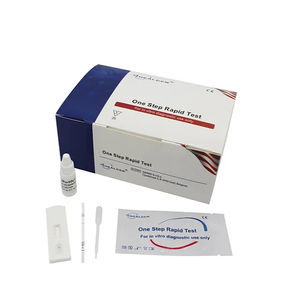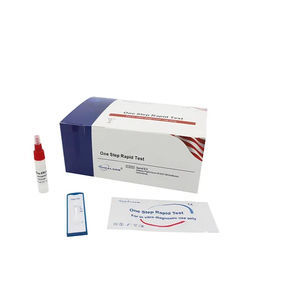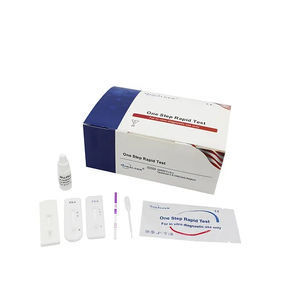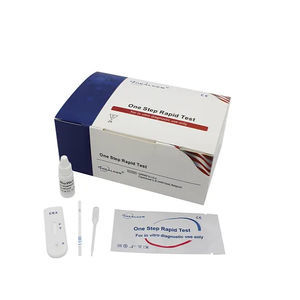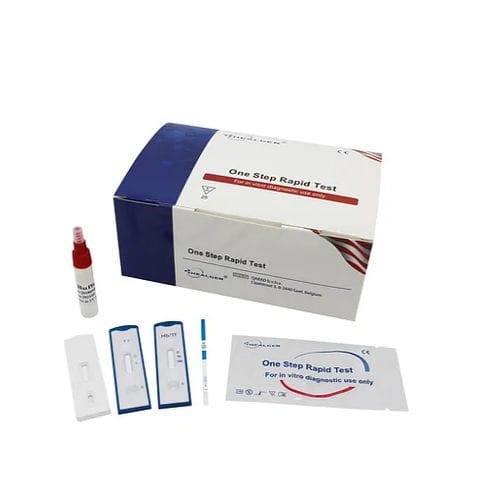
- Laboratory
- Laboratory medicine
- Rapid colon cancer test
- Healgen Scientific

- Products
- Catalogs
- News & Trends
- Exhibitions
Rapid fecal occult blood test GEFOBcolorectal canceroncologyhemoglobin
Add to favorites
Compare this product
Characteristics
- Applications
- fecal occult blood, colorectal cancer
- Application field
- oncology
- Tested parameter
- hemoglobin
- Sample type
- blood, stool, feces, fecal
- Analysis mode
- chromatographic immunoassay, immunochemical
- Format
- cassette
- Result display time
5 min
Description
Fecal Occult Blood (FOB)-Transferrin Rapid Test Device is a one-step chromatographic immunoassay for the qualitative determination of human hemoglobin (Hb) and human transferrin (Tf) in stool samples to detect gastrointestinal bleeding. The test is intended for use by health care professionals as an aid in the diagnosis of premature syndrome linked to the intestinal bleeding.
Colorectal cancer is a leading cause of illness and death in the Western world. Screening with fecal occult blood tests is based on the concept that important target colonic neoplasm, such as early-stage cancer and large adenomatous polyps, will bleed, for which may be detected by an occult blood test. When gastrointestinal blood is lost, the stool will contain a combination of intact or nearly intact hemoglobin, intact heme, and heme-derived porphyrins in amounts that depend on the site, the amount of bleeding and the transit time through the gut. Immunochemical tests detect intact or nearly intact human hemoglobin, being a very specific technique to detect the loss of blood from the lower intestine, because blood from lower sites is less degraded during transit. The hemoglobin is unstable in feces, leading to false negative results.
The detection of fecal transferrin, which is more stable than hemoglobin, provides an alternative way of diagnosing the disease in the upper digestive tract. Transferrin is a blood-derived component that may be leaked into gastrointestinal tract and then discharged with the feces in gastrointestinal bleeding diseases. Transferrin is stable in feces and a good marker to detect loss of blood from the upper and lower intestine (gastrointestinal bleeding).
Exhibitions
Meet this supplier at the following exhibition(s):

Related Searches
- Assay kit
- Immunoassay assay kit
- Infectious disease detection kit
- Blood rapid diagnostic test
- Rapid lateral flow test
- Immunoassay rapid diagnostic test
- Cassette rapid diagnostic test
- Molecular test kit
- Virus rapid diagnostic test
- Serum rapid diagnostic test
- Respiratory infection test kit
- Plasma rapid diagnostic test
- Infectious disease rapid diagnostic test
- Optical assay kit
- Whole blood rapid diagnostic test
- Lateral flow test kit
- Fluorescence assay kit
- COVID-19 detection kit
- Rapid respiratory infection test
- Urine rapid screening test
*Prices are pre-tax. They exclude delivery charges and customs duties and do not include additional charges for installation or activation options. Prices are indicative only and may vary by country, with changes to the cost of raw materials and exchange rates.

